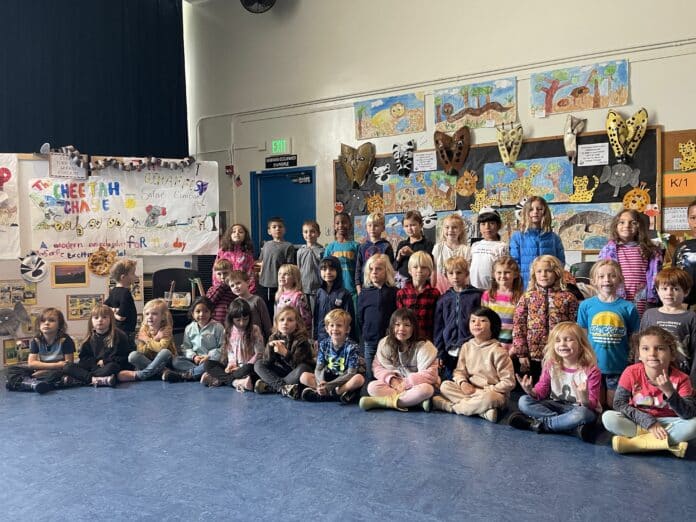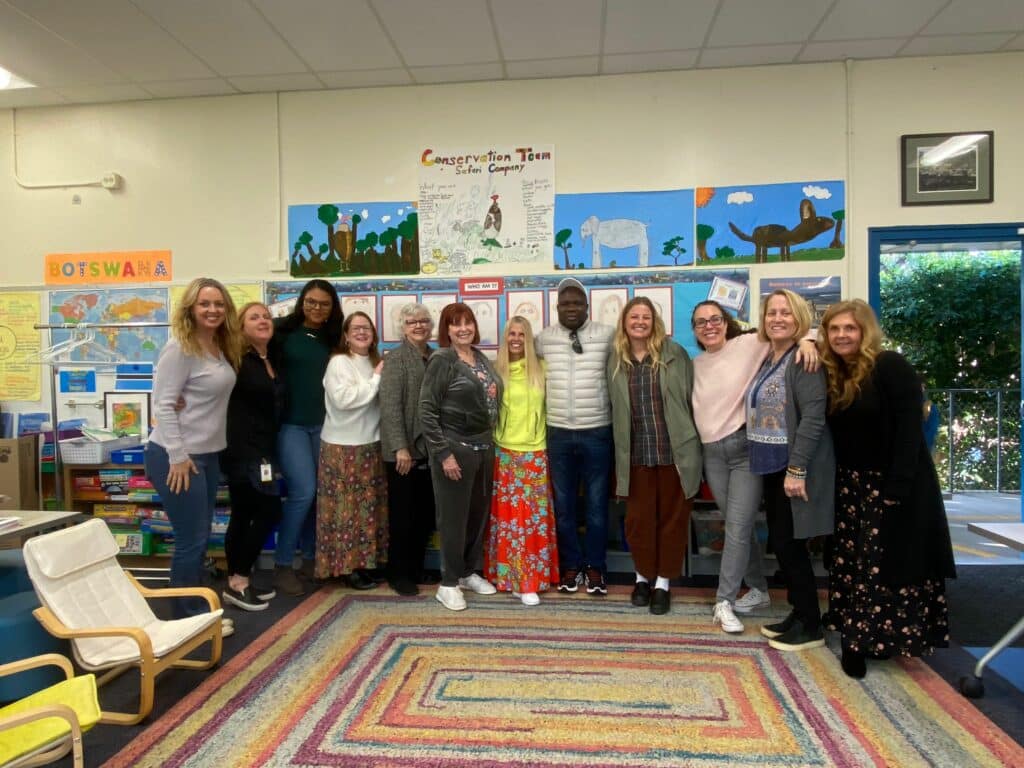
Project Based Learning is a teaching pedagogy in which students learn by actively engaging in real-world dialogue and meaningful projects through an initiative called the Botswana School Project.
Over the last two years, Webster and Malibu elementary schools have been rethinking the way teachers collaborate and expand their curiosity about themselves and the world beyond the classroom. Through numerous learning exchanges, Malibu students have had the opportunity to expand their creativity and cultural engagement with young people, animals and the world beyond Malibu.
In 2010, former teacher and Malibu public school administrator Pat Cairns, co-founded BSP. This year, students in both countries made educational and cultural connections through live streaming led by BSP Country Director and Lead Facilitator Brooks Kamanakao. Kamanakao has knowledge in the world of naturalism and loves his home village in Botswana, Africa. While Kamanakao has visited Malibu four times in the last 10 years, speaking to Malibu students about his home country, animals, conservation and ecology, this year’s project-based learning expanded to a school-wide initiative (TK-5th grade) with multiple teachers and classrooms both here in Malibu and in Botswana.

On Dec. 1, parents were invited to a school-wide assembly celebrating their children’s work using STEAM (Science, Technology, Engineering, Arts, and Math) and talking with teachers and Kamanakao about the impact of this project learning experience. The event illuminated how excited students were to participate in this project and the ways they engaged learning collaboratively within their school and in Botswana.
A fourth-grade student named Dax asked “what is the best renewable energy source Botswana could use?” They came up with multiple sources, analyzed them, and then moved to solutions that would be sustainable. Initial questions came from the STEAM program written by teachers Wendy Berman-Baker and Sheryl Murdock.
A fourth grader named Moral told Superintendent Ben Drati, “I like learning this way because you get to study things whatever way you want. I learned the mechanics of how turbines work. We talked about what cities in the future might be like in our country. In our teams, we built future cities for Botswana, while still respecting animal.”
Projects involved in-depth discussions about land, animals, people and water and focused on skills like reading and writing. Some examples include second- and third-grade students’ investigation of the Malibu Lagoon after learning about the Okavango Delta wetlands.
Another project, for fifth-graders, explored the art of folktales through creative string art work visualized in constellations in both hemispheres and how some constellations overlap the hemispheres. They created a night-sky canvas while using math to map the distance.
This global exchange is inspiring and transcends the ways that teachers teach and collaborate across grade level and subject area. This focus and commitment to teachers illustrates the importance of knowledge sharing and creative processes through global awareness. Through an interactive learning process, students get to imagine while learning real-world skills that help them open their lens of curiosity to ask questions, think creatively, and always have fun.
Kamanakao wrapped up his latest two-week visit to the schools on Dec. 8. He shared his knowledge around conservation, ecology, and ways to cultivate these practices within the learning environment so that this work continues to evolve. This year, every class at Webster Elementary participated as well as three classes from Malibu Elementary and one class at Malibu Middle School.
Webster Elementary kindergarten and first-grade teacher Dee Dee Cooper oversees the project at all Malibu public schools sponsored by the Boys & Girls Club of Malibu.
“We are thrilled to have provided such an enjoyable and invaluable educational experience for our students,” Cooper said. “We aim to keep our students, fellow teachers, and the Malibu Public Schools administration motivated and interested in new ways of learning through projects like this. We are excited to continue sharing with parents and the greater community all of the wonderful things that are happening in our schools. We believe it’s important for our young people, our school systems, and our community to get involved and learn from other communities, around the world, like Botswana and the Motopi School students.”
